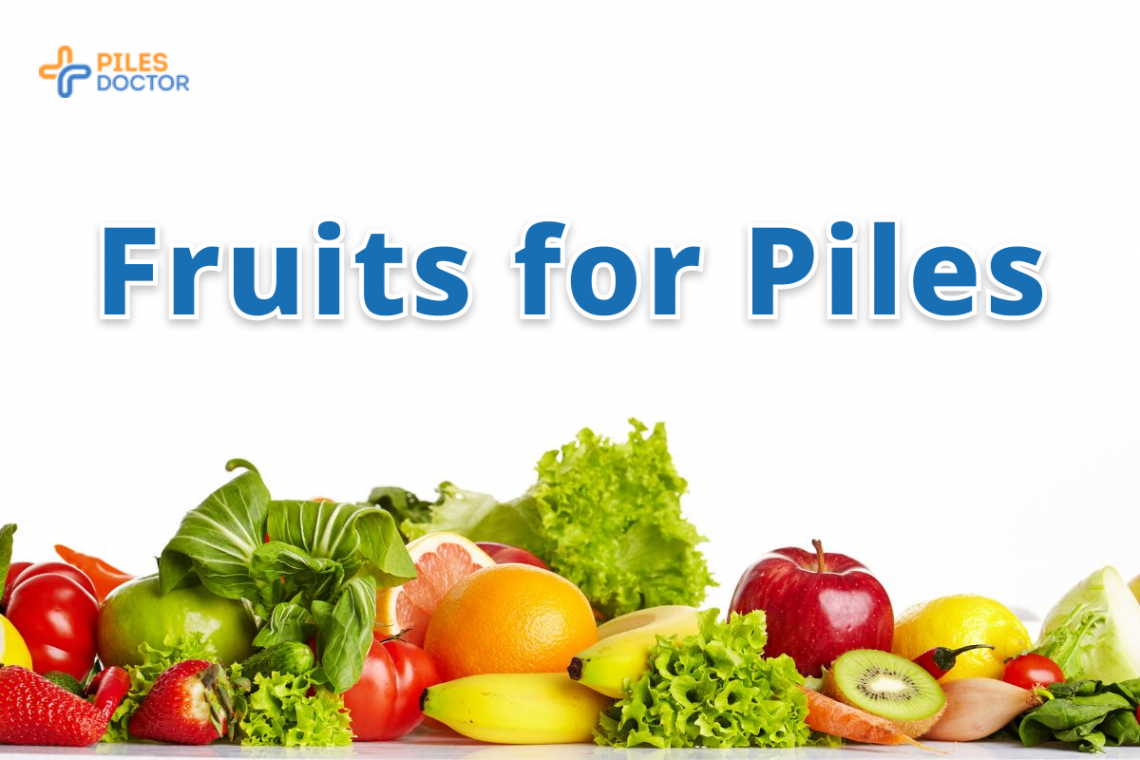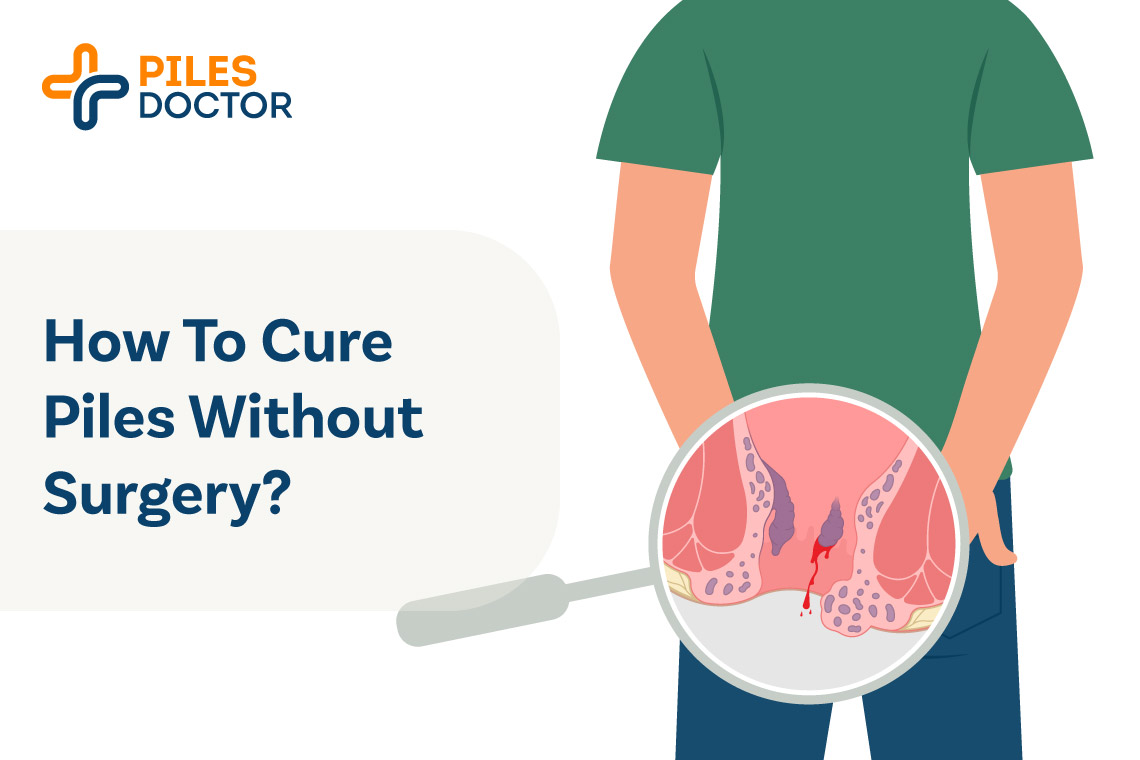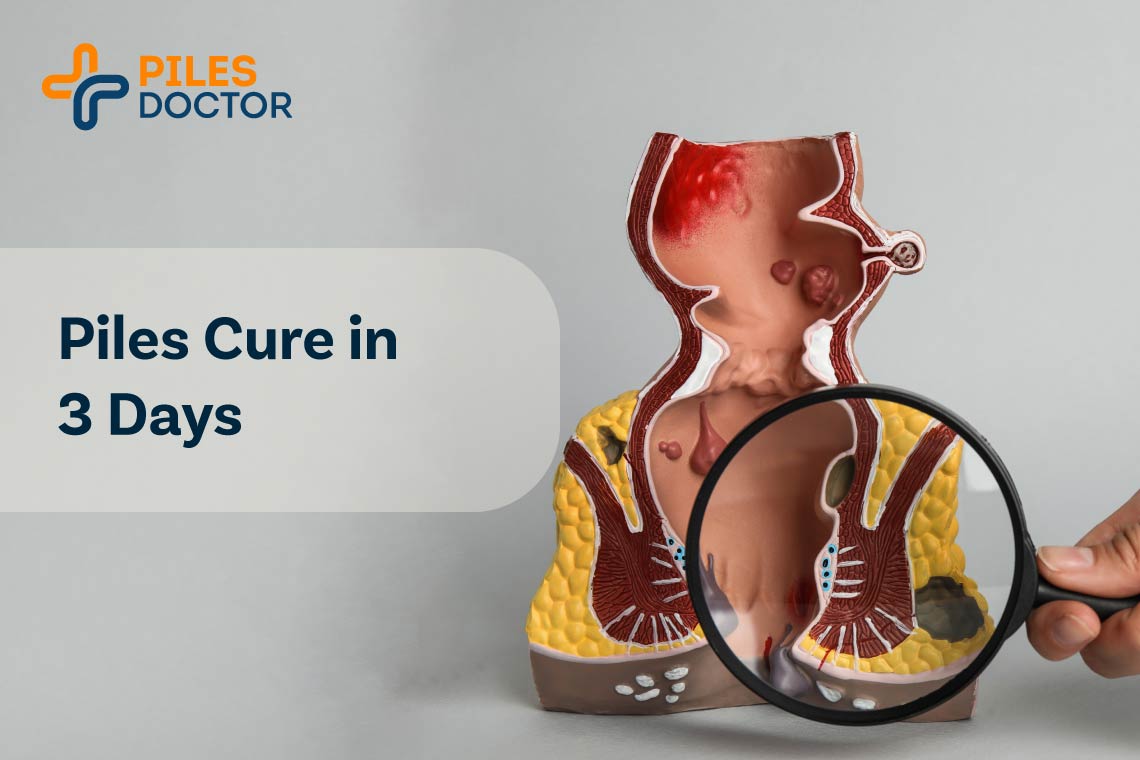Fruits are an essential part of a healthy diet and are recommended for people with piles. Piles, also known as hemorrhoids, are swollen veins in the anal canal that can cause discomfort and pain. Consuming fruits can help prevent constipation, which is a common cause of piles.
In this blog, we will understand how fruits are beneficial for piles and how they can be consumed to prevent piles.
Best fruits for piles
Listed below are the best fruits for piles that can help alleviate symptoms and promote healing. ;
Apples
An apple in a day keeps the doctor away and your piles too. Apple is a natural remedy and one of the best fruits for piles. It is rich in fiber and antioxidants, which help in reducing inflammation and preventing constipation. Apple juice is good for piles to alleviate the pain and discomfort associated with it.
Bananas
Bananas are one of the best fruits for relieving the symptoms of piles. This is because it is a rich source of fiber, which can help regulate bowel movements and reduce constipation. Additionally, bananas contain vitamins and minerals that can help strengthen the digestive system and reduce inflammation. To add bananas to your diet, try adding them to smoothies or eating them as a snack.
Raspberries
Raspberries have been used to treat piles due to their high fiber content, which can help regulate bowel movements and reduce constipation. Additionally, raspberries are rich in antioxidants that can help reduce inflammation and promote healing. To add raspberries into your diet, consider adding them to smoothies, yogurt, or oatmeal. Raspberry juice is best for piles, but you can eat them directly or as a snack.
Pears
Pears have been known to offer relief from hemorrhoids due to their high fiber content. The fiber helps to regulate bowel movements and prevent constipation, which is a major cause of piles. Eating ripe pears regularly can also help to reduce inflammation and irritation in the affected area. Adding pears to your diet can be a simple and natural way to manage the discomfort associated with piles.
Papaya
Papaya is good for piles and known for its health benefits and is often used as a natural remedy for several ailments. One such ailment is piles, which is a common condition affecting many people worldwide. Papaya contains enzymes that aid in digestion and can help relieve constipation, a common cause of piles. Consuming papaya regularly can also help reduce inflammation and promote healing of the affected area. Therefore, incorporating papaya into your diet may provide relief from piles and improve your overall digestive health.
Blackberry
Blackberry is a popular fruit that has been used for medicinal purposes for centuries. It is known to have anti-inflammatory properties that can help ease the discomfort associated with piles. Blackberries can be consumed in various forms. Blackberry juice is best for piles, you can eat it as a snack.
Pomegranate
Pomegranate is believed to have anti-inflammatory properties that may help alleviate symptoms of piles. Consuming pomegranate juice is good for piles and may reduce inflammation and pain associated with piles. However, more research is needed to understand the effects of pomegranates on piles fully.
Powder of dry mango seeds
Dry powder of mango seeds is a traditional remedy for piles. It is believed to have anti-inflammatory properties that may help reduce swelling and discomfort. To use, mix the powder with water to form a paste, then apply to the affected area. As with any home remedy, it is important to consult with a healthcare professional before use.
Prunes
Prunes is a natural remedy for piles, also known as hemorrhoids. The high fiber content in prunes helps regulate bowel movements, reducing the strain on the rectal area. It is recommended to consume prunes daily to prevent and alleviate hemorrhoids. Prunes can be eaten as a snack or added to meals for a fiber boost.
Figs
Figs are good for piles and have long been used as a natural remedy to relieve the symptoms. They are rich in fiber and contain enzymes that aid digestion, making them an ideal food for those suffering from hemorrhoids. Eating figs regularly can help alleviate symptoms such as pain, itching, and bleeding. It is recommended to consume 2-3 figs daily for maximum effect.
Kiwis
Kiwis have been suggested as a natural remedy for piles. This is because kiwis are a good source of fiber which helps regulate bowel movements and reduce constipation, a common cause of hemorrhoids. Additionally, kiwis are rich in vitamin C which can help strengthen blood vessels and reduce inflammation. Including kiwis in your diet may help alleviate the symptoms of piles.
Citrus fruits
Citrus fruits are a great addition to a diet for those suffering from piles. Juices made from citrus fruits such as oranges, lemons, etc are considered the best juice for piles.
These fruits, such as oranges, lemons, and grapefruits, are rich in vitamin C and fiber, which can help soften stools and ease bowel movements. Additionally, the antioxidants found in citrus fruits can help reduce inflammation in the body, which may alleviate symptoms of piles. Adding citrus fruits into a balanced diet may provide relief for those experiencing discomfort from piles.
Above listed are the best fruits for piles. Fruits only can not treat the condition but provide relief from the discomforting symptoms associated with piles. If you suspect you may have piles, you should consult an experienced proctologist to get the appropriate treatment for piles.
Takeaway
In conclusion, adding fruits to your diet can be a helpful way to ease the discomfort associated with piles. Fruits such as apples, bananas, strawberries, and blueberries are rich in fiber and can help regulate bowel movements, reducing the strain and pressure on hemorrhoids.
Additionally, fruits like papayas are rich in enzymes that aid digestion, which can also help alleviate symptoms of piles. It is important to note that while fruits may offer some relief, they should not be used as a substitute for medical treatment or advice.
If you are experiencing persistent symptoms, it is important to consult a healthcare professional for proper diagnosis and treatment. Overall, a balanced diet that includes plenty of fruits and vegetables, along with adequate hydration and exercise, can play an important role in preventing and managing piles.




